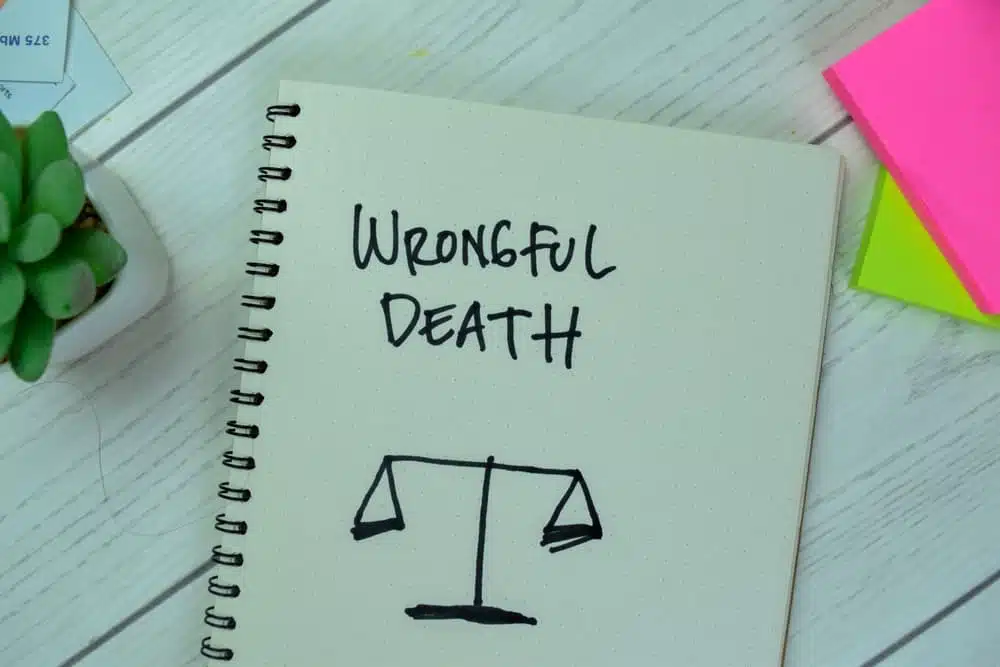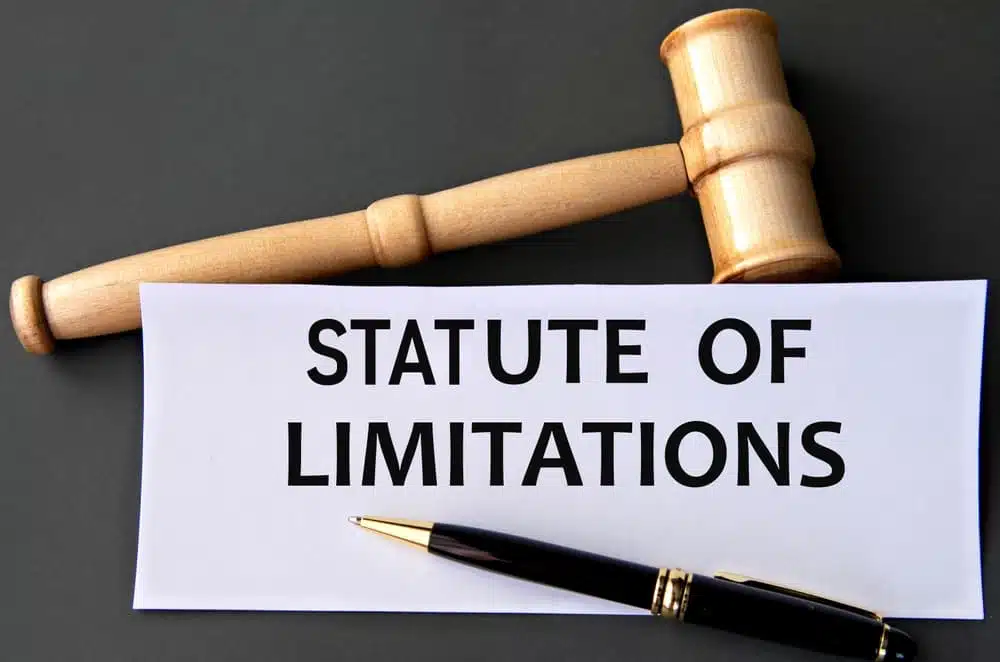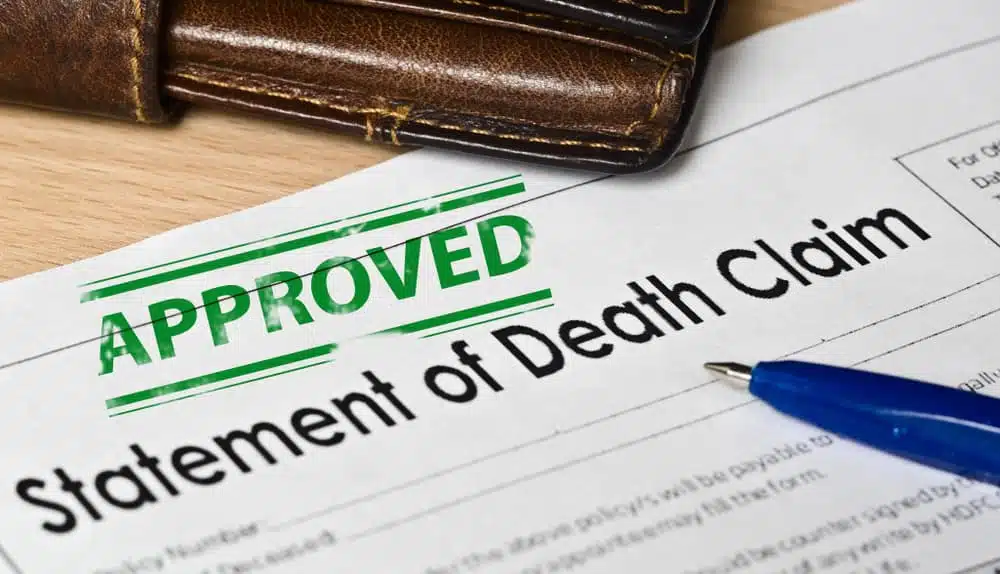
The statute of limitations for filing a wrongful death lawsuit in Pennsylvania is generally two years from the person’s death.
If you miss this deadline, you cannot seek compensation through the court. However, some exceptions may shorten or lengthen this deadline.
Consult a Philadelphia wrongful death attorney as soon as possible if you want to pursue a wrongful death claim to ensure you don’t miss any important deadlines.
What Is a Wrongful Death?
In Pennsylvania, a wrongful death occurs when a person dies due to the wrongful act, neglect, or negligence of another party.
The circumstances that can lead to a wrongful death claim vary, but some common examples include:
- Motor vehicle accidents
- Medical malpractice
- Workplace accidents
- Defective products
- Premises liability
- Intentional acts
To pursue a wrongful death claim in Pennsylvania, you must prove:
- Another party’s wrongful act, neglect, or negligence caused the death.
- The deceased person could have filed a personal injury claim had they survived.
- There are surviving beneficiaries who have suffered damages because of the death.
- The decedent’s estate appointed a personal representative.
The personal representative of the decedent’s estate can file a wrongful death claim on behalf of the beneficiaries to seek compensation for their losses.
Consult an experienced wrongful death lawyer to meet all legal requirements.
How Much Is a Wrongful Death Case Worth?
The experienced personal injury lawyers with Rothenberg Law Firm LLP have recovered millions of dollars on behalf of our clients in wrongful death settlements and verdicts, including:
- $19.87 million awarded to the parents and husband of a pregnant woman killed in an explosion
- $13.75 million awarded on behalf of a client’s family
- $6.5 million verdict in a case involving a fatal Ford Explorer roof crush case
- $1.4 million awarded in a wrongful death case against an automobile manufacturer
- $1 million awarded to the estate of a pedestrian struck and killed by a delivery van
- $950,000 awarded in a workplace death due to an OSHA violation
- $750,000 recovered on behalf of a victim killed in a fire
While these cases demonstrate the potential for multi-million-dollar recoveries, results vary based on each case’s specific circumstances. Importantly, if plaintiffs fail to file a wrongful death lawsuit before the statute of limitations expires, beneficiaries cannot recover compensation for their losses through the court system.
Wrongful Death Statute of Limitations in Pennsylvania
Dealing with the sudden loss of a loved one is an incredibly difficult and painful experience, especially when that death was caused by the negligent or wrongful conduct of another party.
While taking legal action is likely the last thing on your mind during this trying time, time limits dictate how long you have to file a wrongful death lawsuit in Pennsylvania. The statute of limitations sets this time limit.
Here’s an overview of the key things you need to know about the Pennsylvania wrongful death statute of limitations, including:
- How long you have to file a wrongful death claim in PA
- When the clock starts ticking on the statute of limitations
- Exceptions that can extend the filing deadline
- Why you shouldn’t wait to take legal action
- How an experienced wrongful death attorney can help
Understanding these critical details about the statute of limitations can ensure you don’t forfeit your legal right to pursue justice and compensation for your tragic loss. Let’s start by examining the specific time limit for wrongful death claims in Pennsylvania.
What Is the Statute of Limitations for Wrongful Death Claims in PA?
Under Pennsylvania law, the statute of limitations for filing a wrongful death lawsuit generally gives you two years from the date of the decedent’s death to bring a legal claim against the liable party or parties.
This is a hard deadline. With very limited exceptions (which we’ll discuss below), if you attempt to file a wrongful death lawsuit after the two-year statute of limitations passed, the court will almost certainly dismiss your case.
You will then lose your right to pursue civil justice and monetary damages related to your loved one’s death. This is true regardless of how strong your case is or how clear the other party’s fault.
While two years may seem like plenty of time, it goes by very quickly. A wrongful death lawsuit requires completing many steps. Time passing by hinders efforts to track down key evidence and witnesses to build a strong case.
Grieving families should reach out to an experienced wrongful death attorney as soon as possible so the process can get underway.
When Does the Statute of Limitations Clock Start?
As mentioned above, Pennsylvania’s two-year statute of limitations on wrongful death claims typically starts running on the date of the decedent’s death. However, this is not always the case. Sometimes, the clock may pause, or the deadline may extend based on the discovery rule or other exceptions.
The discovery rule is one of the most notable exceptions to the standard two-year statute of limitations. Under this rule, the clock may not start ticking until the date that the cause of death was (or reasonably should have been) discovered.
For example, let’s say your loved one passed away, and the cause was initially ruled natural causes. Two and a half years later, an autopsy revealed that your family member actually died due to complications from a medication error made by a treating physician.
In this scenario, the discovery rule would likely apply to extend the wrongful death statute of limitations. Instead of the deadline being two years from the date of death, you would have two years from the date the medical error was discovered to file suit.
Why Are There Statutes of Limitations on Wrongful Death Claims?
The state passed a statute of limitations in wrongful death claims to:
- Encourage prompt action: The statute of limitations encourages surviving family members to take legal action in a timely manner. This helps ensure that claims are brought while evidence is still fresh and witnesses can be located. As time passes, crucial evidence can be lost or destroyed, and witnesses’ memories can fade, making it more challenging to build a strong case.
- Provide certainty and closure: The statute of limitations provides a degree of certainty and closure for all parties involved. Potential defendants can be assured that they won’t have a legal claim hanging over their heads indefinitely. It gives them a time limit, after which they can move on. For plaintiffs, it puts them on notice that they cannot sit on their rights.
- Prevent fraudulent claims: The statute of limitations helps prevent fraudulent claims from being brought. The longer someone waits to bring a claim, the more likely it is that false claims could be filed. This is because it’s more difficult to prove or disprove something that happened in the distant past. The statute of limitations reduces the chances of stale or meritless claims.
- Preserve the integrity of evidence: Over time, physical evidence can deteriorate or be destroyed, documents can be lost, and the quality of testimony can decline as witnesses’ memories fade. The statute of limitations helps ensure that cases are brought while evidence is still reliable and intact, protecting both plaintiffs and defendants.
- Promote judicial efficiency: The statute of limitations helps the judicial system operate more efficiently by ensuring that cases are heard in a reasonable timeframe and not bogged down by stale claims from the distant past. Courts have an interest in handling matters while evidence is fresh and most reliable.
- Balance the interests of all parties: Statutes of limitations strike a balance between the plaintiff’s right to bring a claim and the defendant’s right to be free from having to defend against old claims. They give plaintiffs enough time to discover their injury and act upon it while still protecting defendants from the prejudice of old claims.
While statutes of limitations are important, they can also have harsh consequences. If a grieving family waits too long to act, they can completely lose their right to bring a wrongful death claim, even if the case has merit.
Families must consult an experienced attorney as soon as possible after a loved one’s death to ensure they understand the applicable time limits and take timely action to protect their legal rights.
Don’t Put Off Taking Action on Your Wrongful Death Claim
It cannot be stressed enough: If you lost a loved one due to another party’s negligence or misconduct, contact a skilled wrongful death attorney as soon as possible.
We understand that the thought of taking legal action while dealing with grief can feel overwhelming.
You may think you have plenty of time to contact a lawyer. But before you know it, crucial months have gone by, and important evidence may be lost. By not taking prompt action, you could unintentionally undermine your case and hurt your ability to secure justice and fair compensation.
Even if you’re unsure whether you have a case, speak to a wrongful death lawyer who can evaluate your situation and advise you of your legal rights and options.
Initial consultations are free, and you’re under no obligation to move forward with a claim. If you do have grounds for a wrongful death case, your lawyer can immediately get to work, allowing you to focus on being with family.
An attorney can handle all of the key tasks needed to build your case, including:
- Conducting an independent investigation into your loved one’s death
- Gathering important evidence before it’s lost or destroyed
- Interviewing witnesses while their memories are fresh
- Consulting with expert witnesses such as accident reconstructionist, medical specialists, economists, and others
- Dealing with insurance companies and aggressively negotiating for a fair settlement
- Preparing your case for trial if necessary
- Making sure your claim is filed well within the statute of limitations
Contact a Wrongful Death Law Firm You Can Trust
Choosing the right wrongful death law firm is essential. You want a firm with a proven history of success in complex cases and the resources needed to investigate and develop your case thoroughly. You also want compassionate attorneys who treat you and your family with care and consideration during this challenging time.
At the Rothenberg Law Firm LLP, we have fought for grieving families for over 50 years and recovered hundreds of millions of dollars in successful verdicts and settlements.
We know that no amount of money can ever undo your loss or ease your pain.
However, a wrongful death case is about more than just financial recovery. It’s about holding the responsible parties accountable for their actions. It’s about getting justice for your loved one and finding some sense of closure. It’s about ensuring what happened to your family member doesn’t happen to someone else.
By taking legal action, you can find a way to move forward.
If you believe you may have a wrongful death claim in Pennsylvania, New Jersey, or New York, call the Rothenberg Law Firm at (800) 624-8888 or through our online form for a free and confidential consultation.
Our compassionate, experienced personal injury attorneys in Philadelphia, PA are ready to help you navigate the legal process and fight for the justice your loved one deserves. Remember, the statute of limitations won’t wait, so please don’t delay reaching out for the guidance you need.





